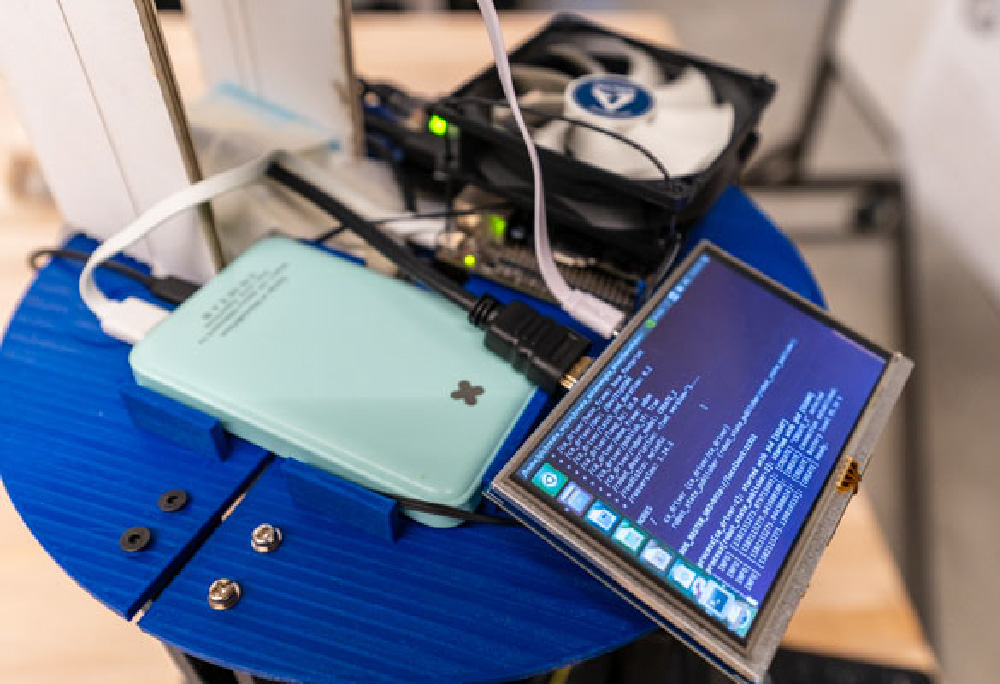There are no “typical” students in the UW’s MS in Technology Innovation degree. They bring a shared love of technology and come with diverse educational backgrounds, interest areas, and levels of experience. Each brings a unique perspective and skillset to their team projects, class discussions, and coursework.
We interviewed two current students, Vivian Wang and Chuck Scott, to learn how their very different paths ultimately led them to the University of Washington and how they’ll leverage the degree they’ll receive this coming December.
Vivian Wang
“I graduated from the University of Washington with an art history degree, and then I worked about a year as a project coordinator and recruiter. I’ve always been interested in technology, but not professionally. I had taken a few CS classes, but that was it.
A lot of my friends were in computer science and tech; the whole tech world was around my life. When you look at it from the outside, you might think art and tech don’t collide, but I think there are a lot of similarities. Curation is about understanding the user’s view; we have to understand the perfect position and sequence for the artwork. Curation is visitor-obsession work, and technology is customer-obsession work.

One of the projects I worked on during the MSTI program was an indoor navigation robot that would help tourists find their way around an airport. I’d love to keep working on that and make an actual deliverable. From a project management standpoint, I learned a lot; it’s important to consider the whole problem.
One of my concerns before starting the program was that it was too broad, but I’ve found it was a good fit for me. As an art history undergrad, I would suffer in computer science classes. But this program is good because they teach you the basics of many subjects, and you have a good chance of working on whichever piece you’re most interested in, digging deeper into it. I found out I’m interested in project management and product design, so in my projects, I’d work on those things as the PM or UX designer. That naturally gave me more opportunities in areas that I’m interested in.”
Chuck Scott
“I did six years as a hospital corpsman in the military right out of high school and then six years at UW Medicine doing outpatient clinical care before returning to school and graduating in 2019 from UW Bothell with a Bachelor of Arts in business. I was looking for an opportunity to change career paths entirely. I knew I wanted to pursue a grad program of some sort and truly master some areas. Business was a natural course for my undergrad, but not a true passion. The MSTI program allowed me the opportunity to explore more technology than I’d been exposed to, and to also direct my career towards the tech industry.
I wanted to have intensive training in technical areas, like programming, sensors & circuits, a little hardware development, cloud development, and more. Those interests have stayed pretty consistent; my main goal has been to learn technical skills–the design thinking skills were a bonus.
Working in the GIX Prototyping Labs has been one of the most memorable parts of the whole experience for me. I’ve connected not only with the work of making, but also the making and hacking community.
The design process is truly key, and the solution is rarely as simple as we expect it to be. Lots of our work is actually delaying the technical development while we dive into a problem space. It’s learning how to be empathetic to the user and understand the underlying factors that make up the entire situation. You delay the technical development until you understand what you need to make for the user, and then you begin the iterative process of making the solution. Using a full design-thinking lens has been interesting because it allows you to tackle any problem.
My background was in business roles even before getting my undergraduate degree, so I felt strong on the business aspect before starting. I still feel strongly about those, but now I’m able to apply equal abilities to other disciplines. I’m not a software engineer, but I can get into the code base and understand it and add value. Being able to work side-by-side with engineers and designers while keeping a conversation going about development and iteration has been a very positive experience for me.
For me, intellectual curiosity in a new realm, and willingness to push myself were very important–for others, it could be something else. As I see it, the purpose of the program is to experience that interdisciplinary mix; you don’t need to be an expert in every field, but you should be curious about it. There are things you might not be interested in until you have the exposure to them. You need the openness, curiosity, and willingness to push yourself to grow. Those are traits that are very common amongst all of us.
I’ll be the first to admit that I was very nervous about coding when I started here; I just didn’t have a lot of experience when I started. I did the tech bootcamp and went through the classes and had great teammates. I’m doing significantly more programming day-to-day than I ever thought I would. Those were strengths that I built from ground zero that I’m proud of. I remember someone telling me that you learn as much from the people around you as you do from your classes. I’ve learned so much from being exposed to people with such diverse skill sets, and I think it’s better that not everyone is the same.”


